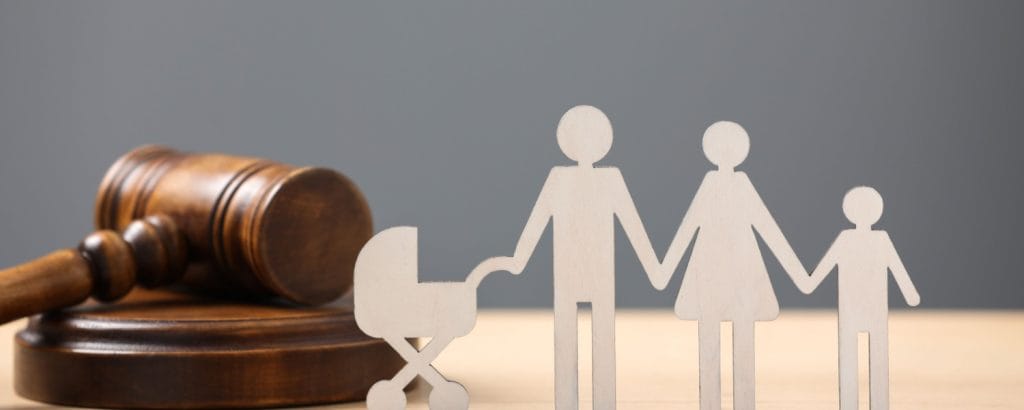Family court proceedings are often emotionally charged and complex, involving disputes that impact the lives of individuals and their loved ones. As these cases unfold, the question “Can I use a voice recording as evidence in family court in Illinois?” has gained significant attention. In this blog post, we delve into the intricacies of using voice recordings as evidence in family court, exploring:
- Legal Considerations
- Ethical Implications
- Ensuring Authenticity
- Interpretation and Context
Keep reading to see how we handle these issues at KGN Law Firm.
Related Articles: Family Law vs Divorce in Illinois | How Much Does a Family Law Attorney Cost in Illinois?
The Legal Landscape
The admissibility of voice recordings as evidence varies widely based on jurisdiction and legal framework. Some jurisdictions adhere to a “two-party consent” rule, which necessitates the agreement of all parties involved in the recorded conversation for the recording to be admissible. This rule stems from the belief that recording conversations without the knowledge and consent of all participants infringes upon their privacy rights. Other jurisdictions follow a “one-party consent” rule, permitting recordings when at least one participant is aware of and consents to the recording. Illinois’ rule is found at 720 ILCS 5/14-2(a)(2).
The following states are two party consent states:
California Delaware Florida Illinois
Maryland Massachusetts Montana Nevada
New Hampshire Pennsylvania Washington
The rest of the states are one-party consent states.
The implications of these rules are profound. The two-party consent rule, while focused on preserving privacy, can potentially hinder the presentation of evidence that might be crucial to a case. These consent rule apply when there is a reasonable expectation that a conversation will be private. If you are talking to your spouse in your home then there is a reasonable expectation of privacy. If you are in public, however, there is no expectation of privacy and your conversation can be recorded without you knowing.
On the other hand, the one-party consent rule acknowledges the value of voice recordings in revealing the truth, even in situations where one party records a conversation without the knowledge of the other. It is important to know the rules and regulations in your jurisdiction so you can make informed decisions about your case. When in doubt, always talk to a lawyer when handling sensitive material.
In part this article is designed to be a reminder that Illinois is a two party consent state, so you must have your spouse’s consent to record them. Along those same lines, it is always important to follow the law and any court orders. To learn more about the concequences of not following court orders check out our article “What Happens if You Don’t Follow a Family Court Order in Illinois?“
How Does Consent Work?
Before diving into how voice recordings are used in family court, it is important to discuss how consent operates in both one-party and two-party consent states. In both one-party and two-party consent states, consent is required to record any conversation that takes place anywhere the involved members have a reasonable expectation of privacy. A person would likely have a reasonable expectation of privacy when they are alone with the other involved parties either in one’s home, a private meeting space, on a phone call, or any other similar situation.
When in public there is no reasonable expectation of privacy. While in public, people often take pictures and videos for social media or personal use. There is no expectation that, while around several strangers in a restaurant or museum, you will have the level of privacy you would have in your own home with the doors locked.
In two-party consent states, also called all-party consent states, all members of a conversation must be notified that the conversation is being recorded for the voice recording to be admissible in court. This would mean all members, before the recording starts, must be informed that the recording is going to begin.
In one-party consent states, only one party has to consent to the recording for the recording to be admissible. This means if you want to record a conversation you are about to have, then you can. Because you, the recorder, have consented to have your voice recorded in the conversation, one party has already consented and therefore the recording is admissible.
So, what happens if someone has security cameras in their home? In 2024 it is easier than ever for families to get home security systems that often have cameras capable of recording audio. While these cameras are often used against intruders, can they be used against you in your own home? While in public places, businesses and other entities are required to give notice to patrons if that business or entity is using video/audio surveillance. Even if the cameras and recorders are obviously placed where patrons can see, notice is still required. The same goes for security systems in your home. If you invite others over, you must notify them that they are being recorded if you are to use that recording for any purpose.
This also means these in home security systems can be used against you, or to your benefit, during family law disputes. Because you had knowledge of the security system and gave consent to be recorded when the cameras were installed, you simply need to save the videos and prove they are unaltered for them to be admitted as evidence. You can also subpoena this information from the owner of the cameras if they do not volunteer the recordings. This happens often when a neighbor’s camera picks up vital information.
Ethical Considerations
The ethical dimension of deciding to use a voice recording as evidence in family court is multi-faceted. One key consideration revolves around the balance between seeking justice and respecting privacy. Critics argue that admitting voice recordings without the consent of all parties could encourage manipulative behavior, where recordings are used selectively to distort context or misrepresent the truth. The prospect of being recorded might also discourage open and honest communication within families during times of conflict.
Moreover, the potential emotional impact of hearing recorded voices cannot be underestimated. In family court cases, especially those involving divorce or custody battles, the emotional weight carried by voice recordings can sway perceptions and judgments. This poses a challenge for judges, who must navigate the line between recognizing the emotional truth of a situation and ensuring that decisions are based on objective analysis.
The situation is similar for text messages. In 2024 it is easier than ever to alter texts and treat them as if they are real. Courts have a process to authenticate text messages and voice recordings, but you still need to make sure the messages are admissible under the rules of evidence. To learn more about using text messages in court, check out our article titled “Are Text Messages Admissible in Family Court in Illinois?”
Ensuring Authenticity
Authenticity is a central concern when considering the use of voice recordings as evidence. In an era where advanced technology allows for easy manipulation and fabrication of audio recordings, verifying the legitimacy of a voice recording is vital. Forensic analysis of voice recordings, conducted by experts, can ascertain the continuity of the recording, the absence of edits, and the identification of speakers. Maintaining the integrity of evidence is crucial for upholding the credibility of the legal process. The court may not allow recordings that cannot be verified as authentic.
Interpretation and Context
Interpreting voice recordings is a nuanced process that necessitates an understanding of context, emotion, and culture. Unlike written documents, voice recordings capture tone, inflection, and emotion, all of which contribute to the meaning of a statement. However, without visual cues, it can be challenging to accurately gauge the intent behind words. Different listeners might interpret the same recording differently based on their personal backgrounds and emotional states. Judges and legal professionals must approach voice recordings with caution, taking into account the broader context in which the recording was made.
It is important to remember that recordings work both ways. If you have a jury trial, it is important to think about how the recordings will be perceived. Think about what you are recording, what you need to prove in your case, and if the recording will help your case. Remember that your voice may also be in the recording. Juries are left to interpret everything in the case and may end up prejudiced against you if they do not understand the situation or do not like what they hear in the recording. Make sure to clearly tell your story and give context for the recordings.
Practical Challenges
Using voice recordings as evidence comes with practical challenges. Technical issues can arise in terms of the quality of the recording, background noise, and the audibility of voices. Such challenges can affect the accuracy and reliability of the evidence presented. Additionally, the potential for manipulation or selective recording raises questions about the completeness and authenticity of the information provided by the recording.
This can be hard to do alone so make sure to consult a qualified family law lawyer like those at KGN Law Firm. Judges want to make informed decisions and when cases get complicated it helps to have quality legal representation in your corner to ensure all rules and regulations are followed. If you are going to represent yourself, consider checking out our article How to Represent Yourself in Family Court in Illinois.
Conclusion: Can I Use a Voice Recording as Evidence in Family Court in Illinois?
The question of whether voice recordings can be used as evidence in family court is a complex issue that involves legal, ethical, and practical considerations. The admissibility of these recordings varies from one jurisdiction to another, reflecting the delicate balance between seeking justice and safeguarding privacy rights. While voice recordings have the potential to shed light on important aspects of family disputes, they also present challenges related to authenticity, interpretation, and emotional impact.
As technology continues to evolve, the legal system must adapt to new forms of evidence while upholding fundamental principles of fairness, accuracy, and privacy. The use of voice recordings in family court underscores the need for thoughtful, case-specific evaluations that take into account the nuances of each situation. Striking the right balance between protecting individual rights and pursuing truth is essential for ensuring that family court proceedings are just, equitable, and respectful of all parties involved.
MEET WITH AN ILLINOIS FAMILY LAW ATTORNEY TODAY
The Family Law attorneys at Koth Gregory & Nieminski understand that your family is the top priority, which is why we offer SAME-DAY APPOINTMENTS. If you need a divorce or other family law services, you can schedule your first meeting through our online appointment calendar. We look forward to meeting you.
Disclaimer: This article (Can I Use a Voice Recording as Evidence in Family Court in Illinois?) may contain information that is outdated as Illinois law continuously evolves. Meeting with an experienced family law attorney is the best way to ensure you are receiving the most current information about How to Use a Voice Recording as Evidence in Family Court in Illinois.
Published by Dustin Koth on February 1, 2024





